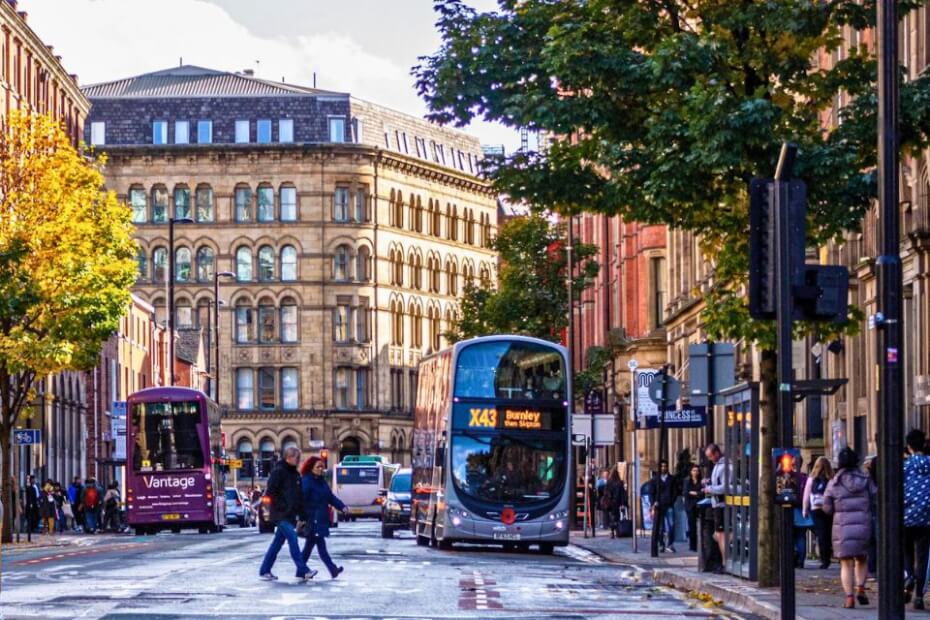
Visitors to Manchester helped raise about £2.8 million after the city introduced a tourist fee, according to a report by the BBC.
Manchester City introduced its Visitor Charge of £1 per room per night in April 2023 after 80 percent of local hoteliers voted in favor of it.
England’s third-largest city was the first destination in the United Kingdom (UK) to impose a “tourist tax.”
Compared to other tourist taxes, Manchester’s visitor charge is not designed to discourage visitors or combat overtourism.
Instead, the tourist fee aims to fund measures to attract more visitors and increase tourism revenue, particularly during low occupancy periods.
Where Manchester City’s tourist fee goes
Kumar Mishra, a spokesperson for Manchester City Accommodation Business Improvement District (ABID), shared that the funds have been used for street cleaning and marketing campaigns.
Manchester ABID, which comprises 74 hotels and serviced apartments in the city, manages and distributes the funds raised from the tourist fee.
One of its aims is to keep occupancy rates high as more tourist hotels and apartments are built in Manchester.
Manchester ABID addresses concerns that visitor numbers were not keeping pace with the new developments.
Mishra added that the city’s visitor charge had also positively affected its accommodation sector.
Manchester City has seen an almost 23 percent increase in available beds since 2019, up from 10,500 to 12,900.
However, occupancy rates have decreased by three percent, as reported by Manchester ABID.
At the same time, another 6,000 rooms are expected to be ready for use in 2024.
Marketing campaigns are underway to promote the city beyond the high tourist season. These include events like the Manchester Flower Festival, Manchester Pride, and Chinese New Year celebrations.
Mishra declared that the city also has “big plans” to make Manchester even more attractive to visitors next year. This includes planning for more music events and business conferences.
Funding has also gone into training for security staff, as well as city center street cleaning.
Cambridge planning to charge tourist fees in 2025
Time Out reported that Cambridge announced plans to impose a tourist tax as early as 2025.
Like Manchester City’s visitor charge, Cambridge’s tourist fee would be an additional nightly charge of £2 per room per night.
Estimates put the yearly funds at about £2.6 million, depending on the number of people staying in the hotels.
The city must first form an Accommodation Business Improvement District (ABID).
Jemma Little, the economic development manager at Cambridge Councils, said the council cannot decide to impose a tourist fee.
She shared, “There needs to be a ballot of the hotels within that catchment area [of Greater Cambridge].”
Once a Cambridge ABID is operational, eligible hotels within the district would collect the tourist tax from customers.
Cornwall raised the idea of having a tourist tax
According to National World, Cornwall, the UK’s popular seaside destination, plans to introduce a tourist fee.
Malcolm Bell, the chief executive of Visit Cornwall, voiced his support for a “Cornish tax” to profit from the many tourists visiting the town.
He added that if Cornwall introduces a tourist fee, the neighboring town of Devon should also have one.
“There is no point in Devon not having one and us having one,” Bell said, to avoid forcing tourists away from Cornwall.
Local reports revealed that more than four million people visit Cornwall annually for a vacation or holiday. Additionally, 12 million make day trips to the coastal region.
Bell stated that if Cornwall introduced visitor charges, the funds would go directly to local businesses instead of the treasury, like regular taxes.
Visitors “want reassurance that their extra payment is going towards something appropriate,” he stressed.
The Visit Cornwall chief believes tourists would be happy to pay the tax if they knew the money would go “to the right cause.”
Cornwall Council has launched a councilor-led inquiry to improve tourism’s year-round benefits, including a registration scheme for short-term holidays and a tourist tax.
Other fees for UK visitors
Many other European destinations have imposed tourist taxes to gain more control over the number of visitors.
Venice already imposes tourist charges for day trips and those who stay in hotel rooms overnight.
Portugal, Iceland, Belgium, and Spain’s Barcelona and Valencia also impose extra tourist fees.
In the UK, apart from Manchester, Scotland already has a bill that allows charges to a local visitor tax based on the percentage of the accommodation cost.
The Welsh government has also been planning to introduce a tourism tax.
Visitors will soon shell out more money once the UK and the EU roll out their digital travel permits.
The UK Electronic Travel Authorization (ETA) costs £10 per application. It is valid for multiple visits over two years or until the passport it is linked to expires.
All visitors who can travel to the UK without a visa, including EU citizens, must have one by the end of 2024.
Currently, only visitors from the Gulf region must have an ETA instead of the now-defunct electronic visa waiver.
Similarly, the EU will launch its European Travel Information and Authorization System, or ETIAS, in mid-2025.
It will cost €7 and be valid for three years, allowing multiple visits to any EU member state.
Visa-exempt visitors, including British citizens, must have an ETIAS before traveling to the Schengen Zone.

